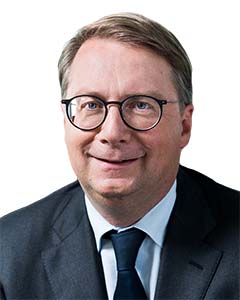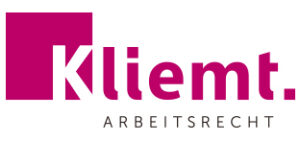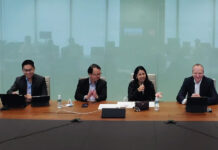Covid-19 has dramatically changed all aspects of labour relations globally. The German consensus model, as it has often been referred, seeks harmonious relations between regulatory bodies and affected parties, and has widely shown its long-term stability. But will it be good enough to cope with the challenges of a post-covid world?

Partner
Tel: +49 89 212 3103-315
Email: burkard.goepfert@kliemt.de
During the main phases of the pandemic, 12 million Germans were on a government-sponsored, short-term work scheme, with 30% of the country’s population being directly or indirectly affected by the adversity of lower salaries and concerns regarding the future of their jobs. Up to today, 90% of the hotel and leisure employees are out of work and 30% of the traditional workforce may have to remain on leave until the end of the year.
At the same time, almost all of the critical business sectors of German industry are being challenged by a substantial transformation:
. The airline and travel industries are affected by a long-term change of the business environment;
. The car and supply chain industries are affected by the challenges on electro-mobility and supply chains; and
. The energy industry is affected by decarbonisation and changes in environmental laws, etc.
It is against these substantial changes that any issue with the German workforce, particularly during a transaction, will need to be reviewed. However, please note the following:
. Not only will a new German government be voted on in September (with a change in leadership from Chancellor Angela Merkel, and most likely a shift to the Green Party), all German companies will vote on their works councils in the spring of 2022. Election campaigns in one way or another will last throughout the first half of 2022.
. Traditionally strong German unions are facing severe pressure from members. As their membership numbers sharply decline, the unions need to beef up their presence in the month before the elections.
. Most likely, the left side of the parliament will be in opposition as of mid-2021, and will team up with the unions.
. Before this article went to press the largest German union, the metal workers, were preparing for a nationwide strike to secure a higher wage agreement and more flexible working conditions, with the chief human resources officer of Daimler leading employers to get through the strike.
All of this development is normal in an industrial country, but will have its effects when planning for a transition, reorganisation, or merely a modernisation of working conditions in Germany.
So, what can be done? The author recommends three potential strategies that can be adopted and even combined:
(1) While share transactions are rather straightforward, any kind of asset transaction, service agreement or carve-out transaction will require a consultation process under European and local law. The German equivalent to Transfer of Undertakings (Protection of Employment) Regulations (TUPE), the European Commission’s Acquired Rights Directive, will require a consultation with the employee representatives and detailed information of the employees.
Both processes will reveal all potential changes to co-determination and works council structures, terms and conditions, employment and potential plans that the acquirer may or may not have with the business. This, in particular, will require the company to reveal any restructuring plans that may only be disclosed at a much later stage, post-transaction.
In this challenging situation, it would be wise to think about the view of unions and the works council – what will they want to protect or achieve in the process, and how to best address this without impairing the ability to make the next change. Most recently, in larger transactions – such as German multinational conglomerate ThyssenKrupp’s sale of the elevators business to a private equity consortium, or Austrian chip maker AMS’ bid on German lighting group Osram – the unions have proposed and achieved a so-called “best owner” agreement with the potential acquirers, which guaranteed the continued status of co-determination, acquired rights, pensions and the protection for sites and employees for some considerable time.
In the AMS/Osram transaction, the commitment letters had been signed prior to, and conditioned upon, the closing. The parties had agreed on a moderator, a senior human resources (HR) person, to oversee the agreement and its fulfilment by AMS.
In the elevators business transaction, in the meantime, the parties have had to undergo a restructuring post-closing in which the commitment letters have been tested. A failure to do so may severely impair your ability to do a transaction in German industry.
(2) When running a German business, bear in mind a term that is called a Zukunftsvereinbarung (future agreement) between a company and its workers’ representatives. With this, there is no need to guarantee the existing setup of your German presence any more, but to co-operate towards a transformed business with guidelines for the sites, investment and re-qualification commitments.
Those familiar with the current situation in Germany will see a very recent trend of the metal workers union to demand such commitments as a part of their nationwide demands for a new wage, and a warning to go on strike. Preparing to consider this in advance for HR activities on the ground is the key.
Changing the mindset and HR communication away from “exist” to “retain” will address the key people in the first place, and show perspective in a challenging environment. As such, a Zukunftsvereinbarung, if run well, can even be a successful retention factor.
(3) Think of re-qualification of staff as a tool for a profound transformation. There is still a “chicken and egg” problem to be solved: Qualification for what? But this discussion has been around for two to three years now, and well-known research organisations (e.g. Fraunhofer) are already giving good guidance on future qualification requirements in machinery techniques, or in programming skills. The frameworks of company agreements are often sufficient for qualification, which can be filled in as company agreements on site, with qualification plans within agreed budgets.
This allows for a moment of reflection on the labour relations situation, as compared to other European countries. While other jurisdictions, such as Italy and some Scandinavian countries, have imposed strict bans on restructurings during the covid crisis, most European countries have at least imposed a stringent governmental approval process for businesses after closing their operations.
Germany, like the UK, has decided not to do so, but to encourage maintaining employment by a generous government-sponsored, short-term work programme, leaving the industrial relations to the parties in the field such as the metal workers union and the local works councils. The German government is thereby trusting a social model based on compromise, rather than on conflict, with a preference to local solutions. Just like Japan, sometimes this model does not seem progressive enough from an Anglo-Saxon perspective, but it keeps a high degree of social stability and flexibility, where required.
When you see a vast need for transformation or change in the German energy sector, as well as in traditional sectors like car, manufacturing, shipping, chemistry and military, you will be surprised to see how much things have already been changed, and how the creativity is used by the chief human resources officers, and their counterparts in the unions and works councils, to cope with this in a timely, but mostly harmonious manner.
Conclusion
Anyone who does not address the above-mentioned issues immediately must not complain about reduced short-time working benefits from summer, and will not be surprised by the unpleasant results of the works council elections in 2022, because the workforce slogan “only who changes, remains true to oneself” has long since arrived.

Burkard Göpfert
Partner
Tel: +49 89 212 3103- 315
Email: burkard.goepfert@kliemt.de
KLIEMT.Arbeitsrecht
Ottostraße 17
80333 Munich
Tel: +49 89 2123 103-300
Email: muenchen@kliemt.de
www. kliemt.de





























